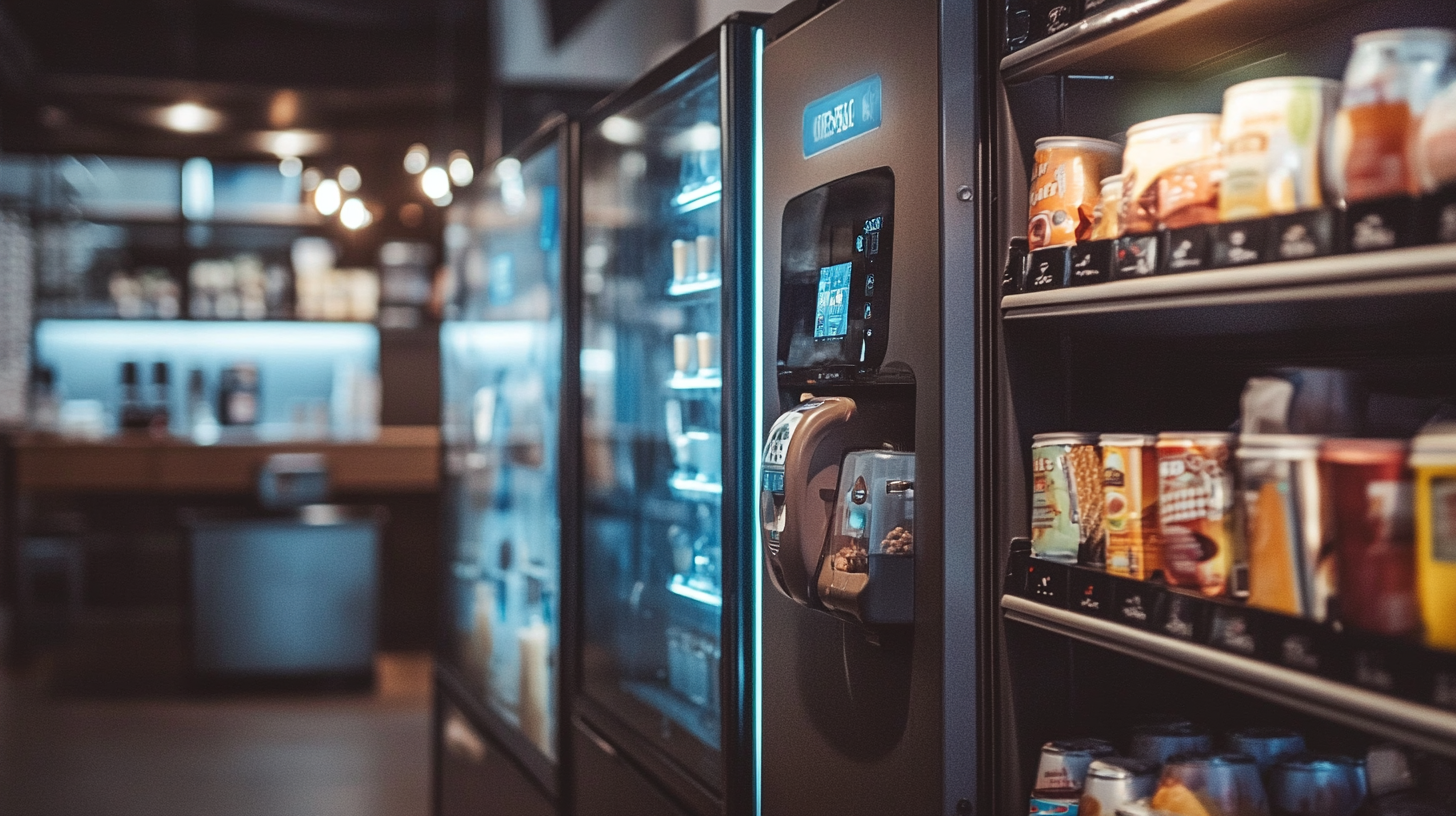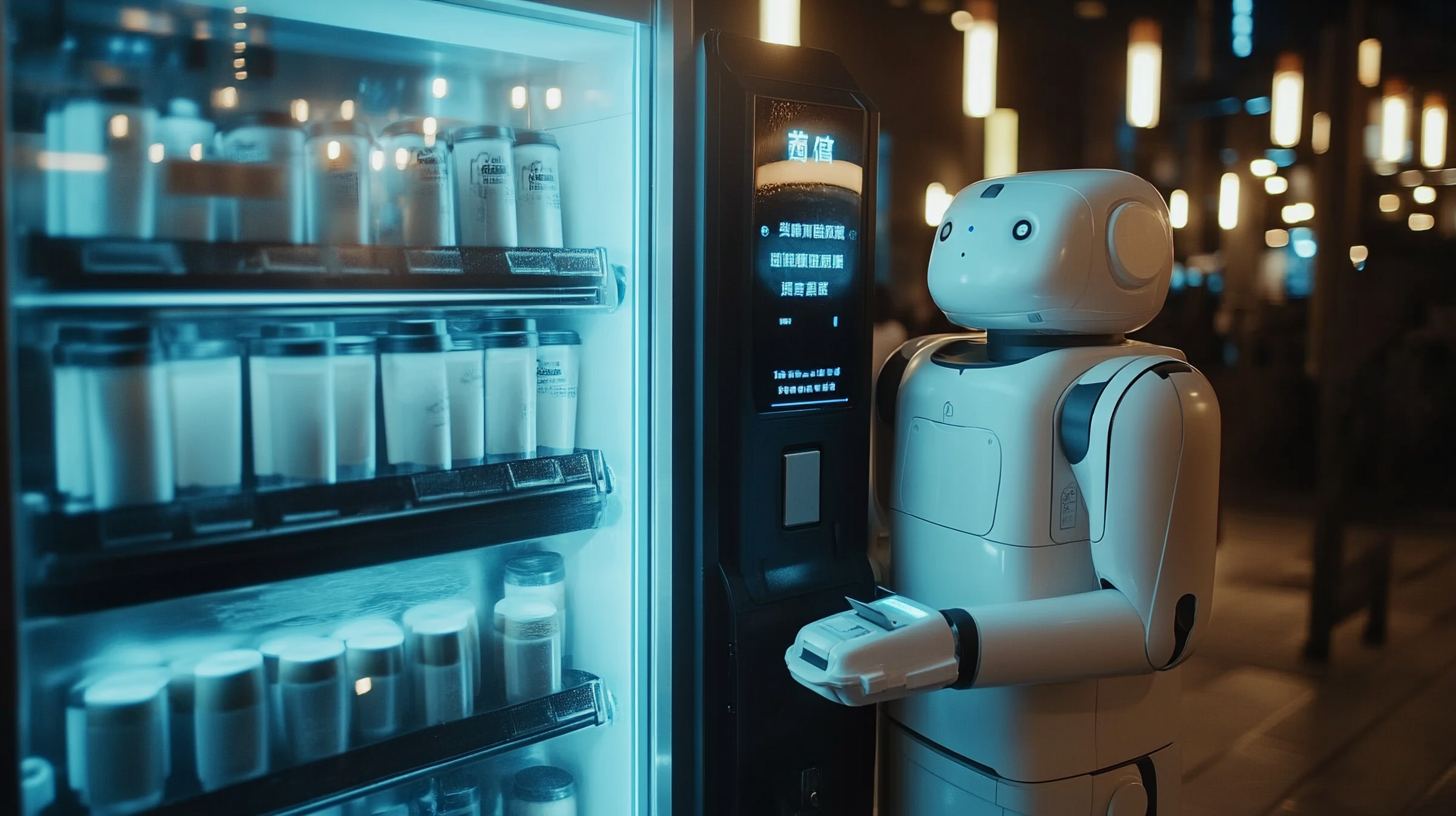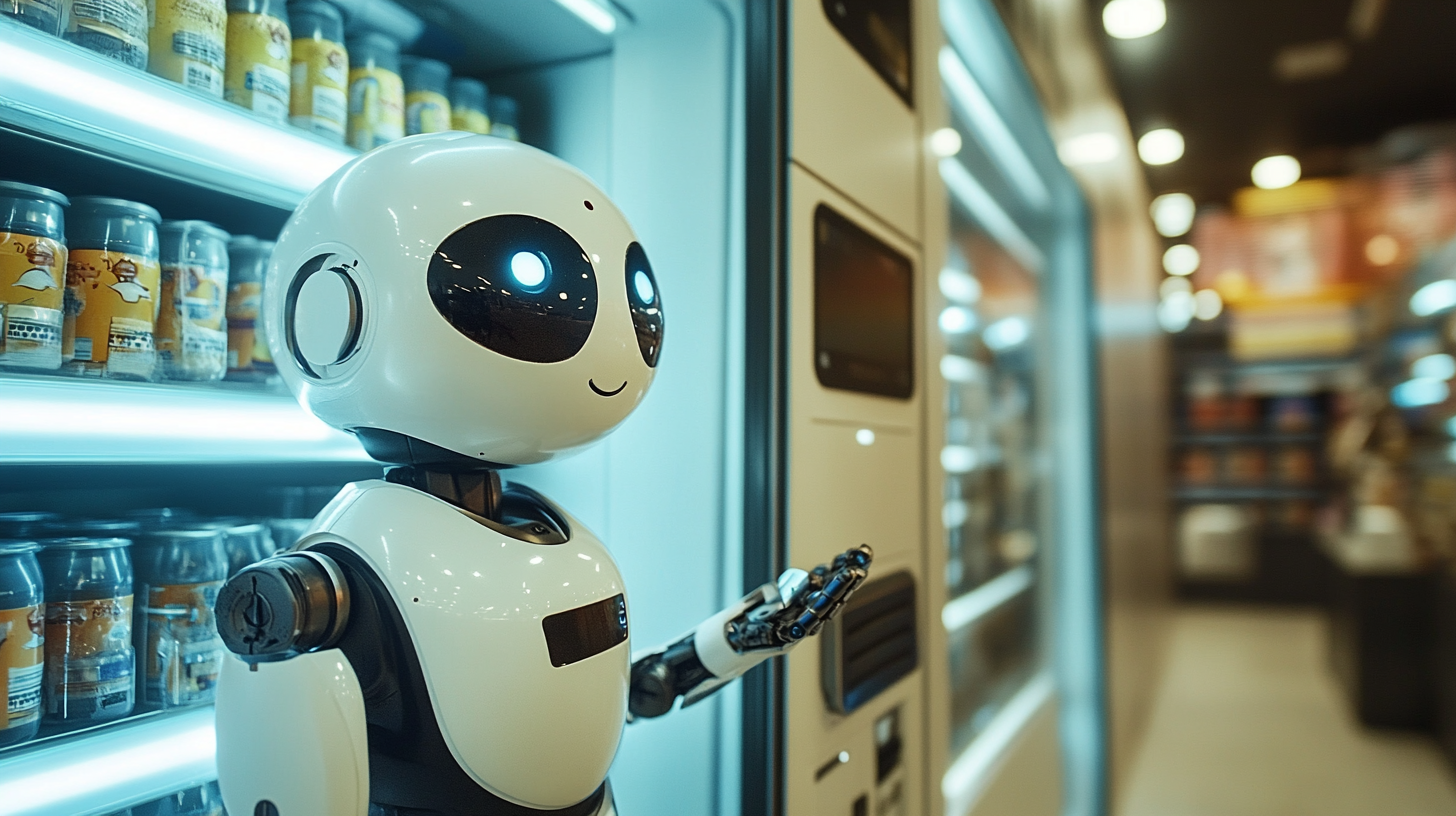

The Advantages of After Sales Support and Maintenance Costs for Robot Coffee Vending Machines in the Future
As the coffee industry continues to evolve, the introduction of innovative technologies like the Robot Coffee Vending Machine has revolutionized how consumers enjoy their favorite brews. According to a report by Grand View Research, the global vending machine market is projected to reach $30 billion by 2025, driven by the growing demand for convenience and automation in everyday life. The rise of these automated coffee dispensers not only meets the fast-paced lifestyle of modern consumers but also introduces significant advancements in coffee quality and customization.
However, the success of Robot Coffee Vending Machines hinges not only on their initial appeal but significantly on the after-sales support and maintenance they receive. A study from Statista reveals that effective after-sales service can enhance customer satisfaction by up to 85%, ensuring that machines remain operational and efficient over time. Understanding the long-term maintenance costs associated with these machines is essential for businesses looking to invest in this technology. As we explore the advantages of robust after-sales support, we will uncover how it contributes to the sustainability and profitability of Robot Coffee Vending Machines in the future.

Benefits of After Sales Support for Robot Coffee Vending Machines
The rapid evolution of technology has ushered in a new era for vending machines, particularly with the introduction of robot coffee vending machines. These high-tech devices not only serve delicious beverages but also require robust after-sales support to ensure optimal performance. The benefits of after-sales support for these machines are multifaceted and crucial for businesses looking to invest in this technology. Firstly, reliable after-sales support translates to reduced downtime. When issues arise, timely assistance is vital for getting the machines back up and running, minimizing disruption to service. Customers expect immediate access to quality coffee, and any delay can result in lost sales and diminished customer satisfaction. A dedicated support team can address malfunctions quickly, providing businesses with peace of mind and enhancing the overall customer experience. Additionally, ongoing maintenance is essential for prolonging the lifespan of robot coffee vending machines. Regular check-ups and updates not only improve operational efficiency but also ensure that the machines are equipped with the latest technology and software. This proactive approach to maintenance helps prevent costly repairs in the future, allowing operators to focus on their primary goal: delivering high-quality service to their customers. By investing in strong after-sales support, businesses can maximize their return on investment while fostering loyalty among their clientele.

Cost Management Strategies for Maintaining Robot Coffee Vending Machines
As the adoption of robot coffee vending machines continues to rise, effective cost management strategies become essential for operators. According to a recent report by Markets and Markets, the global market for automated vending machines is projected to grow from $16.9 billion in 2021 to $23.1 billion by 2026, indicating the increasing demand for efficiency and innovation in the food and beverage sector. This growth creates both opportunities and challenges in managing maintenance and operational costs.
One of the most crucial strategies for maintaining robot coffee vending machines is implementing predictive maintenance. By utilizing Internet of Things (IoT) technology, operators can monitor machine performance in real-time. A study by McKinsey highlights that predictive maintenance can reduce maintenance costs by up to 30% by preventing machinery failures before they occur. This proactive approach not only prolongs the lifespan of the machines but also minimizes downtime, ensuring that customers have consistent access to their favorite beverages.
Moreover, leveraging data analytics for monitoring usage patterns and inventory can drive significant savings. Research from Deloitte suggests that companies using advanced analytics to optimize their inventory have seen reductions in excess inventory by 25%. For robot coffee vending machines, this means ensuring that popular products are always stocked while reducing waste from less popular offerings. By focusing on data-driven decision-making, operators can streamline operations and enhance profitability, setting the stage for further innovations in the automated vending landscape.

Importance of Regular Maintenance in Enhancing Machine Longevity
Regular maintenance is paramount for the longevity and reliability of robot coffee vending machines. Much like traditional machinery, these automated devices benefit from scheduled upkeep to ensure they operate efficiently over time. The significance of routine maintenance extends beyond mere functionality; it encompasses cost savings, enhanced performance, and increased customer satisfaction. By implementing systematic maintenance practices, operators can identify potential issues before they escalate, thereby avoiding costly repairs and extended downtimes.
With advancements in technology, the landscape of maintenance is evolving. Digital tools and analytics are becoming essential in optimizing maintenance schedules and procedures. For instance, predictive maintenance models utilize data analytics to forecast when a machine might require servicing. This proactive approach not only streamlines operations but also minimizes disruptions caused by unexpected breakdowns. As coffee vending machines become more sophisticated, integrating such digital solutions will be critical in maximizing their operational lifespan and ensuring consistent quality service.
Investing in regular maintenance not only prolongs the life of robot coffee vending machines but also enhances their reliability. As the industry gears up for a future with increasingly automated solutions, the emphasis on preventive maintenance will be vital. The integration of artificial intelligence into maintenance strategies holds great potential, offering operations managers a way to refine processes and achieve greater efficiency. As we look ahead, nurturing these machines through diligent upkeep will pave the way for sustainable business practices and a superior customer experience.

Customer Satisfaction and Loyalty Boosted by After Sales Services
The rapid integration of technology into everyday experiences has transformed how we consume products and services. Robot coffee vending machines represent a significant advancement in the food and beverage industry, offering convenience and efficiency. However, the success of these machines hinges not only on their innovative design but also on the after-sales support they provide. After-sales services play a crucial role in enhancing customer satisfaction, ensuring that users feel supported throughout their interaction with the product.
By offering robust after-sales services, companies can address customer concerns swiftly and effectively. This level of support instills confidence in users, knowing that assistance is just a call away. When customers see that their feedback is valued and that issues are resolved promptly, their loyalty to the brand strengthens. Maintenance costs should not be overlooked either; regular upkeep ensures that the machines operate smoothly, reducing downtime and maintaining product quality. Over time, customers who experience seamless service and prompt responses are likely to return for future purchases, thus driving brand loyalty.
Moreover, warranty programs and maintenance packages can further enhance this relationship. By providing transparent pricing and support, vending machine operators can encourage repeat interactions. This creates a positive feedback loop; satisfied customers spread the word, attracting new users and fostering a community around the product. In this technologically driven world, after-sales support is not just an accessory—it is a critical component of customer engagement and long-term retention.
Future Trends in After Sales Support for Coffee Vending Technology
As the market for robot coffee vending machines continues to evolve, after sales support is becoming increasingly critical for manufacturers and operators alike. According to a recent report by MarketsandMarkets, the global coffee vending machine market is projected to reach $2.3 billion by 2026, growing at a CAGR of 7.9%. This growth underscores the need for robust after sales support systems that can enhance customer satisfaction and loyalty.
Future trends in after sales support for coffee vending technology are likely to focus on predictive maintenance and real-time monitoring. The integration of Internet of Things (IoT) technology allows operators to gather data on machine performance and potential failures. With predictive analytics, companies can schedule maintenance before issues arise, reducing downtime and maintenance costs significantly. A study by Research and Markets indicates that predictive maintenance can reduce maintenance costs by 10-40%, a considerable advantage for businesses looking to optimize profitability.
Moreover, personalized customer support is expected to rise with advancements in AI and machine learning. Automated support systems can analyze user feedback and usage patterns, allowing vendors to tailor their services for specific customer needs. According to Accenture, companies leveraging AI in their after sales processes can achieve a 30% increase in customer satisfaction, thereby driving repeat business in a competitive market. As robot coffee vending machines become a staple in modern workplaces, implementing cutting-edge after sales strategies will be essential for success.
